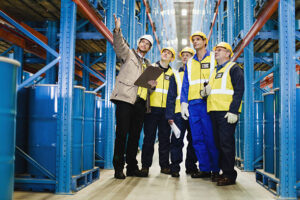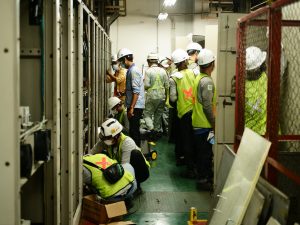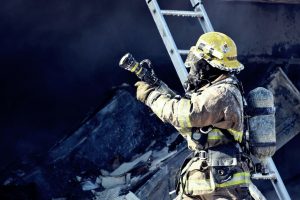In any industrial or commercial environment, workplace safety is more than just a regulatory requirement—it’s a strategic imperative. From oil and gas to construction, mining, and manufacturing, ensuring the safety of personnel protects lives, boosts morale, and enhances productivity. In this article, we explore why workplace safety remains a critical issue and how businesses can create a culture that prioritizes health, safety, and environment (HSE) compliance.
Why Workplace Safety Matters
1. Protecting Human Life
The most compelling reason for safety in the workplace is simple: to protect lives. Every day, employees are exposed to various risks—whether it’s working at heights, handling heavy machinery, or exposure to toxic substances. A single lapse in safety can result in life-altering injuries or fatalities. An effective safety program minimizes these risks and builds trust between employers and workers.
2. Legal and Regulatory Compliance
In Nigeria and globally, regulatory bodies such as the Department of Petroleum Resources (DPR), the Nigerian Content Development and Monitoring Board (NCDMB), and the Occupational Safety and Health Administration (OSHA) enforce stringent HSE policies. Companies that fail to comply face heavy fines, license revocations, or legal action. A strong workplace safety policy ensures you remain compliant and audit-ready at all times.
3. Boosting Employee Morale and Productivity
A safe workplace is a productive one. When employees know their well-being is valued, it boosts morale, reduces turnover, and enhances job satisfaction. In contrast, environments where safety is neglected often suffer from low productivity, absenteeism, and high staff attrition.
4. Reducing Financial Losses
Workplace injuries cost companies billions of naira annually through lost productivity, medical expenses, legal claims, and equipment damage. Investing in preventative safety measures—like PPE, equipment maintenance, and safety training—significantly reduces these costs over time.
Sectors Where Safety Is Critical
Oil and Gas Industry
Operations in oil fields, offshore rigs, and refineries come with high-risk environments. Without proper safety gear and protocols, the consequences can be catastrophic.
Construction and Manufacturing
Falls, electrical hazards, and machine malfunctions make safety practices essential. PPE and hazard assessments are a must.
Maritime and Logistics
Marine operations demand specialized safety training and life-saving equipment due to drowning risks and extreme weather exposure.
Mining
Dust inhalation, equipment collisions, and confined spaces make mining one of the most dangerous sectors—requiring rigorous HSE compliance.
Creating a Culture of Safety
- Leadership Commitment:
Management must lead by example, allocating resources and holding teams accountable for HSE adherence. - Employee Training:
Workers should receive regular, industry-specific safety training, including emergency drills, hazard identification, and PPE usage. - Risk Assessment Protocols:
Conduct frequent assessments to identify hazards, update safety protocols, and ensure continuous improvement. - Safety Equipment & PPE:
Providing high-quality, fit-for-purpose personal protective equipment (PPE) is a non-negotiable requirement for every industrial setting. - Open Communication:
Establish safety committees, suggestion systems, and incident reporting channels to involve every employee in the safety process.
Measuring Safety Performance
Implement safety KPIs such as:
- Lost Time Injury Frequency Rate (LTIFR)
- Near-miss reports
- Safety audit results
- Employee safety engagement scores
Tracking and analyzing these metrics helps organizations understand weak points and take corrective actions proactively.
Conclusion
Workplace safety isn’t just a regulatory checkbox—it’s a long-term investment in your company’s most valuable asset: your people. By building a culture of safety, companies not only reduce risks but also gain a competitive edge through operational excellence, legal compliance, and workforce stability.
Need Help With Workplace Safety?
SOC Energy Services Ltd provides certified PPE, safety consulting, and end-to-end procurement support across Nigeria’s most demanding industries. Contact us today to elevate your safety standards.





